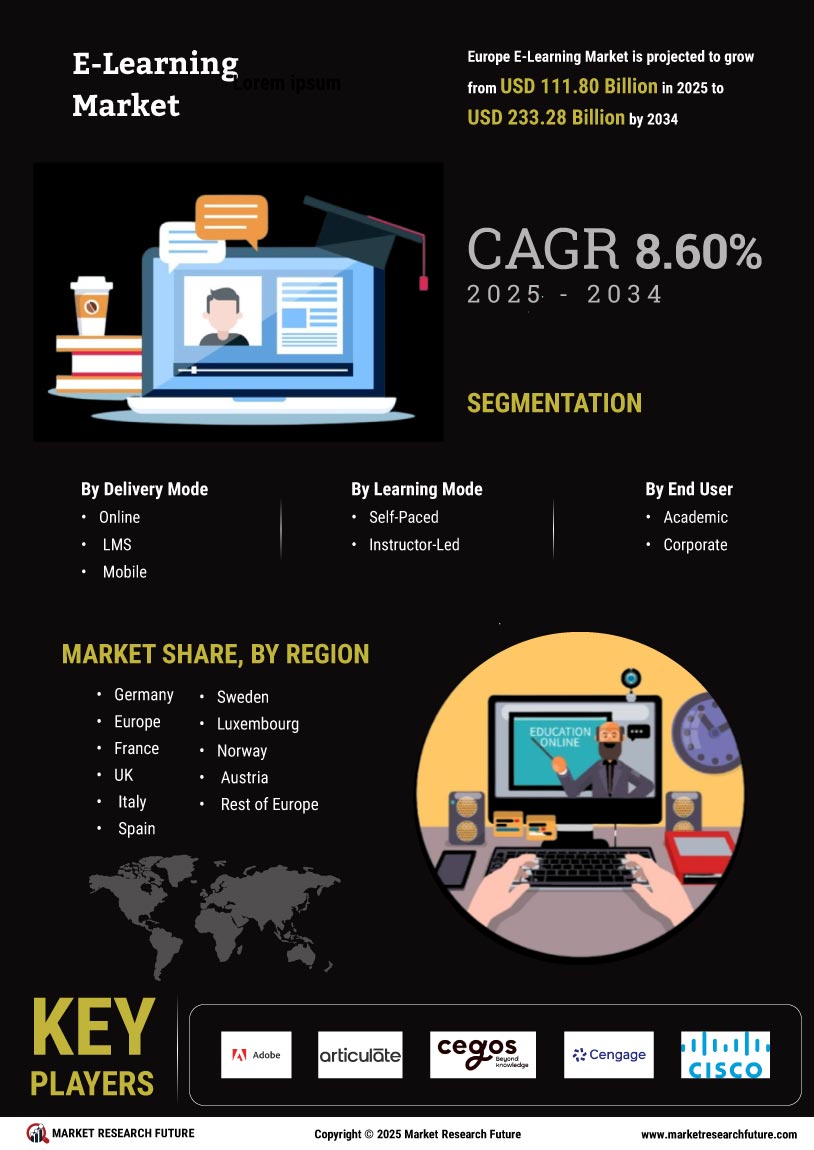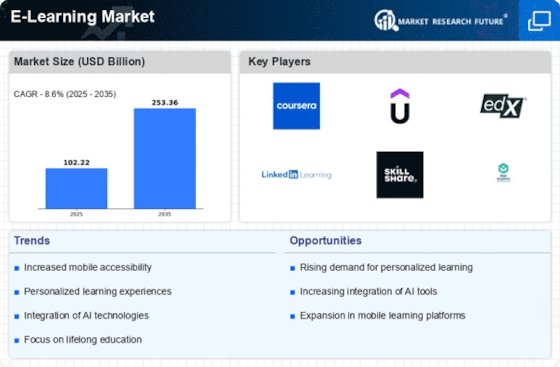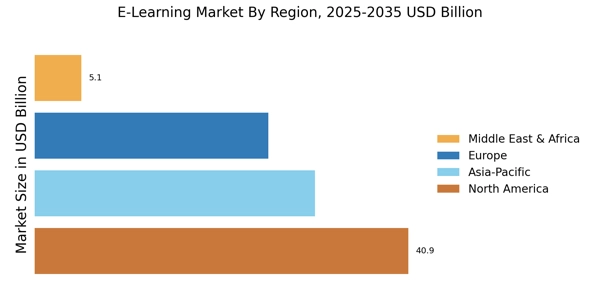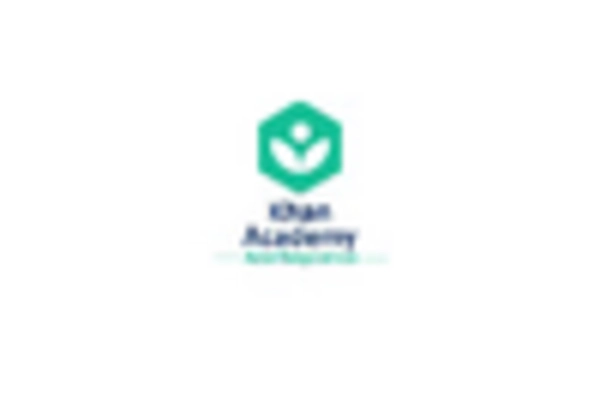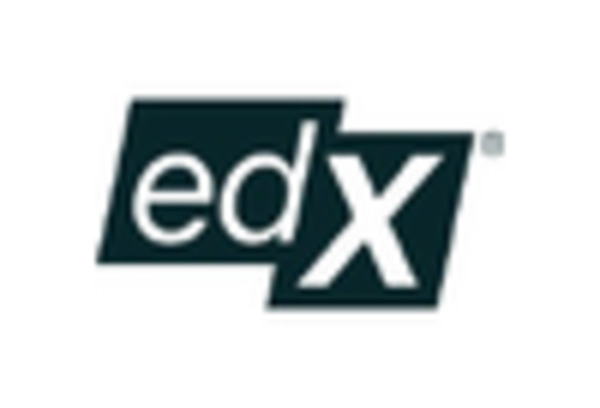Technological Advancements in E-Learning
Technological advancements are playing a pivotal role in shaping the E-Learning Market. The integration of artificial intelligence, machine learning Market, and virtual reality into e-learning platforms is revolutionizing the way educational content is delivered. For instance, AI-driven personalized learning experiences are becoming increasingly prevalent, allowing for tailored educational pathways that adapt to individual learner needs. Recent statistics indicate that the use of AI in education is projected to grow by over 45% in the coming years. Additionally, the incorporation of immersive technologies such as virtual and augmented reality is enhancing learner engagement by providing interactive and experiential learning opportunities. These advancements not only improve the quality of education but also expand the reach of e-learning solutions, making them more appealing to a broader audience. As a result, the E-Learning Market is likely to witness accelerated growth driven by these technological innovations.
Growing Acceptance of Online Certifications
The growing acceptance of online certifications is reshaping the E-Learning Market. As employers increasingly recognize the value of skills acquired through online courses, the demand for accredited e-learning programs is rising. Recent surveys indicate that nearly 80% of hiring managers consider online certifications to be as credible as traditional degrees. This shift in perception is encouraging more learners to pursue online courses, particularly in fields such as technology, business, and healthcare. The proliferation of platforms offering recognized certifications is further contributing to this trend, making it easier for individuals to enhance their qualifications. As a result, the E-Learning Market is likely to expand as more learners seek to gain competitive advantages through online education and certification programs.
Increased Investment in E-Learning Solutions
Investment in e-learning solutions is on the rise, significantly impacting the E-Learning Market. Educational institutions, corporations, and governments are increasingly allocating resources to develop and implement e-learning platforms. Recent data suggests that the global e-learning market is expected to reach a valuation of over 375 billion dollars by 2026, reflecting a compound annual growth rate of approximately 15%. This influx of investment is facilitating the creation of high-quality content, advanced learning management systems, and user-friendly interfaces that enhance the overall learning experience. Moreover, the growing recognition of the importance of continuous learning and professional development is driving organizations to invest in e-learning solutions for employee training and skill enhancement. Consequently, this trend is likely to propel the E-Learning Market forward, fostering innovation and improving accessibility to quality education.
Rising Demand for Flexible Learning Solutions
The E-Learning Market is experiencing a notable surge in demand for flexible learning Market solutions. As educational institutions and corporate entities seek to accommodate diverse learning Market preferences, the need for adaptable and accessible learning Market platforms has become paramount. According to recent data, approximately 70% of learners express a preference for online courses that allow them to learn at their own pace. This trend is likely to drive the development of innovative e-learning platforms that cater to various learning styles, thereby enhancing user engagement and satisfaction. Furthermore, the increasing prevalence of remote work arrangements has further fueled this demand, as professionals seek to upskill and reskill through online courses that fit their schedules. Consequently, the E-Learning Market is poised for substantial growth as it aligns with the evolving needs of learners across different sectors.
Focus on Lifelong Learning and Professional Development
The emphasis on lifelong learning and professional development is a driving force in the E-Learning Market. As the job market evolves, individuals are increasingly seeking opportunities to acquire new skills and knowledge throughout their careers. This trend is reflected in the rising enrollment in online courses and training programs designed for adult learners. Recent statistics reveal that over 60% of professionals engage in some form of continuing education, with many opting for e-learning solutions due to their convenience and accessibility. Organizations are also recognizing the importance of fostering a culture of continuous learning, leading to increased investment in e-learning platforms for employee development. Consequently, this focus on lifelong learning is likely to propel the E-Learning Market, as it aligns with the growing need for adaptability and skill enhancement in an ever-changing workforce.
